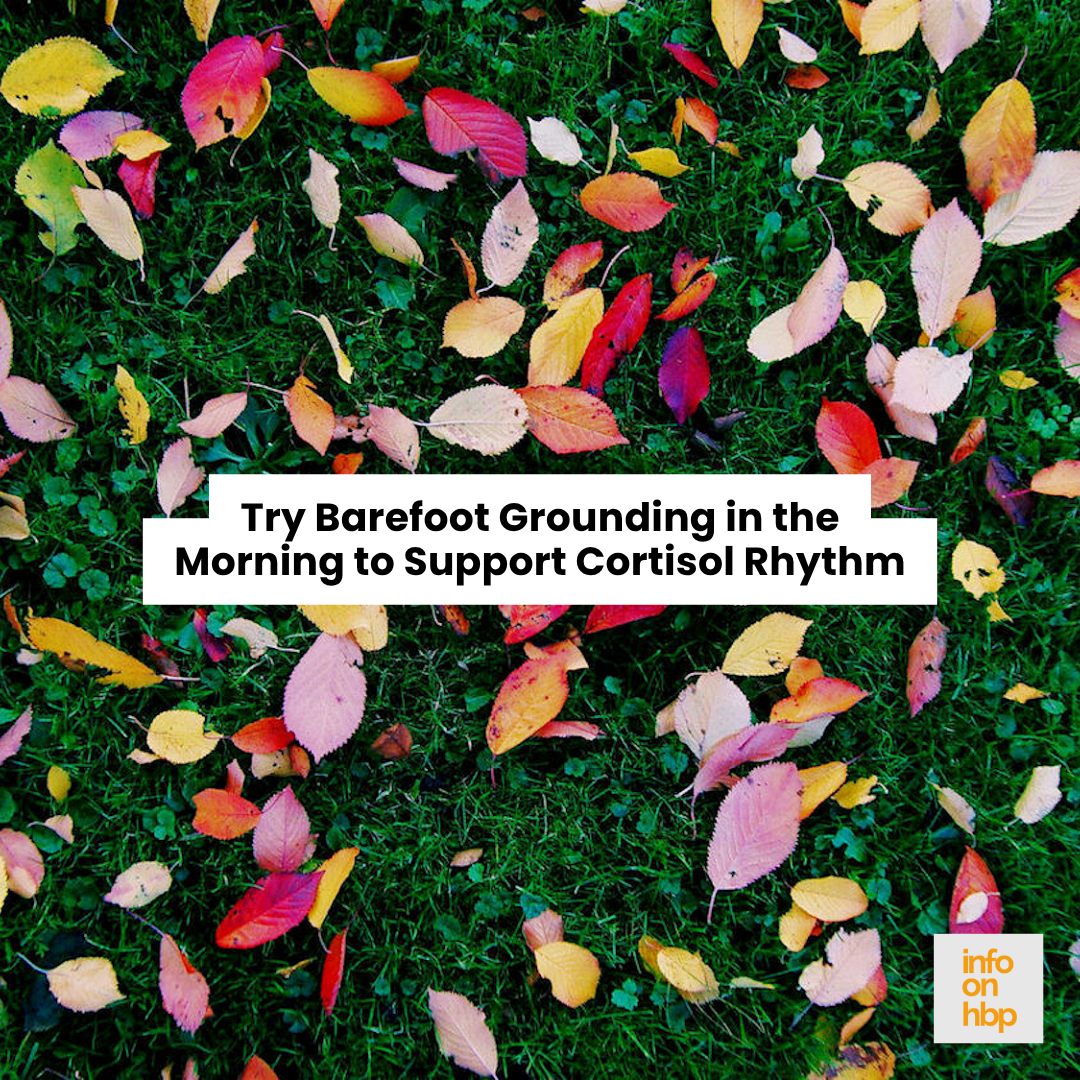Join my community and receive my free ebook! Subscribe now >>
- Home Page of Holistic BP Health
- Holistic Health for Women of Color Podcast
- The Gratitude Challenge
- Season's Eatings Healthy Holiday Recipe Series
- About Me Overcoming HBP
- Healthy Crocktober Recipe Series
- Solo Build It Affiliate Program
- The Stress Solution Workshop
- Introducing The Weekly Stress Edit
- Eat to Listen: The Body Led Elimination Cooking Kit
How To Build A Culturally Sensitive Wellness Routine That Fits Your Life!
Holistic Health for Women of Color Podcast, Episode #104
Imagine a daily practice that celebrates your roots, energizes your body, and sharpens your focus, without asking you to leave your identity at the door. A culturally sensitive wellness routine weaves ancestral wisdom with modern, evidence-based habits to create rituals that feel personal, sustainable, and deeply empowering.
It honors the foods, rhythms, and recovery practices that shaped you, while delivering the clarity, resilience, and calm you need to thrive. If you’re ready to replace burnout with balance, and belonging, let’s design a routine that fits your life like it was made for you, because it was.
Mentioned In This Episode - Holistic Coaching for Health and Wellness

A heads up, if you’re thinking, “Yes, I need help building this for my life,” I offer 1-on-1 holistic coaching designed for women of color who want to reclaim health without giving up their roots. We’ll work together to build habits, reduce stress, and honor your story every step of the way.
I’ll share more about that later in the show.
Subscribe To These Episodes
Apple Listen on Apple Podcasts Spotify Listen on Spotify YouTube ChannelHolistic Health for Women of Color Podcast Core Value - Empowerment!
Welcome to Holistic Health for Women of Color Podcast, where healing meets heritage. I’m Donna Williams, Certified Holistic Health Coach, guided by ancestral wisdom, lived experience, and heart-centered practices.

After navigating high blood pressure and medication side effects, I chose a holistic path, and now I support women of color in reclaiming health with rhythm, rest, and ritual. Expect nourishing food, gentle herbs, mindset work, and culturally rooted practices that honor your whole self. Your body is wise, your lineage is rich, and your wellness is sacred.
When I first started my own wellness journey, I felt torn, between what the health world said I "should" do, and what felt natural in my own life and culture. So many wellness plans ignored the foods, traditions, and rhythms that shaped me. Maybe you’ve felt this too? Like you’re forced to choose between your roots and your health.
I want to clarify why culturally sensitive wellness routine matters!
Too many programs overlook the importance of culture, your family’s favorite meals, spiritual practices, even how you rest and move. When these are ignored, wellness feels like a burden, not a blessing. But when we honor our heritage, routines become doable and joyful, not restrictive.
Today’s podcast episode is How to Build a Culturally Sensitive Wellness Routine That Fits Your Life.
We’re going to talk about what culturally sensitive wellness routine actually looks like, why mainstream routines often miss the mark for us, and a step-by-step framework you can use to build habits that respect your story, your schedule, and your traditions.
Quick note: Nothing in this episode is medical advice. It’s education and encouragement. Always check in with your healthcare provider for personal medical decisions.
Let’s get started.
How To Build A Culturally Sensitive Wellness Routine That Fits Your Life Transcript, Episode #104
So much of mainstream wellness can feel like it’s asking you to choose between your health and your heritage. But you don’t have to give up the flavors, rituals, or family traditions that make you who you are. Instead, you can adapt and blend them with practices that support your unique health journey.
This is especially important for women of color, who often face higher rates of high blood pressure and chronic stress, and whose needs are too often overlooked in generic health advice.
What Gets In The Way?
- Feeling pressured to cut out beloved cultural foods
- Lack of representation in wellness spaces
- Advice that doesn’t consider your family’s tastes, your schedule, or your stressors
- Guilt or confusion about doing things "the right way"
- What is culturally sensitive wellness Routine?
Culturally sensitive wellness routine means your wellbeing practices are built with your identity in mind, your language, your foods, your spiritual practices, your family roles, your work realities, your body, your budget, and your boundaries.
It’s not: - Cutting out every beloved dish because a trend says so. - Forcing a 5 a.m. routine if your shift ends at 4 a.m. - Pretending stress from racism, colorism, xenophobia, or anti-Blackness doesn’t impact your body. - Ignoring intergenerational wisdom from aunties, abuelitas, elders, or your faith community. It is: - Translating traditions into today’s life. - Adjusting habits to your energy, schedule, and season of life. - Including joy, rest, community, and dignity as non-negotiables. - Using tools that fit your life, whether that’s a prayer mat, a grocery budget, a playlist, or a stroller. Because your wellness isn’t just physical. It’s mental, emotional, cultural, and communal. If your routine disrespects your story, it won’t stick and honestly, it shouldn’t.

- Why mainstream wellness often misses us: Many “one-size-fits-all” routines were never designed with women of color in mind. They often require time, money, or access we don’t always have. They may dismiss larger bodies, textured hair, darker skin, protective styles, or the realities of bias in healthcare. They might prioritize foods and exercises from one culture while labeling ours as “cheat meals.” On top of that, chronic stress, think microaggressions at work, caregiving, immigration stress, financial pressure adds to what researchers call “allostatic load,” the wear-and-tear on the body from ongoing stress. That matters for energy, sleep, hormones, and mood. So, if your morning walk doesn’t erase a decade of stress, nothing’s wrong with you. You’re human. That’s why our routines need to be compassionate and strategic. They need to reduce stress, nourish joy, and fit into real life, not fantasy calendars.
- The ROOTS framework:
When I first started my healing journey, I was overwhelmed by all the wellness advice out there. Much of it didn’t reflect my lived experience as a woman of color, or the foods and traditions I grew up with.
After years of trial and error, navigating family expectations, cultural foods, and my own health needs I realized something powerful: true wellness isn’t about erasing your roots or copying someone else’s routine.
It’s about building a foundation that fits your life, honors your culture, and supports your body, step by gentle step.
Here’s a simple, human-centered framework I use with clients to build culturally sensitive routines that last. It’s called ROOTS:
R — Rooted Self-Inventory
O — Observe and Track
O — Orient Your Environment
T — Translate Traditions
S — Sustain and Iterate
Let’s walk through each step, with examples you can use right away.
R — Rooted Self-Inventory
Start by remembering who you are. Take 10 minutes to jot down:
- Lineage and identity: Where’s home for you? What communities raised you?
- Traditions that feel like medicine: Spices, teas, prayers, hair rituals, dance, music, nature.
- Current life reality: Work hours, caregiving, energy, access to grocery stores, budget.
- Non-negotiables: Your faith practices, Sunday dinner, language classes, braiding day.
Example: If you’re Afro-Caribbean and Sundays are for stew, church, and family? Your routine should work with that: maybe meal-prep sides on Saturday, or make a lighter breakfast that day.
O — Observe and Track
For 7 days, lightly track three things:
- Energy: morning, afternoon, evening.
- Stress: moments/events that spike your stress.
- Wins: small things that felt good.
This helps you build around your rhythms. If your energy peaks at 8 p.m., stop forcing 6 a.m. workouts. If your stress spikes after a commute, add a 5-minute decompress when you walk in the door: shower, stretch, gospel playlist, or a quick journaling voice note.
This is how you connect to your culturally sensitive wellness routine that fits your life.
O — Orient Your Environment
Make your environment support your routine:
- Anchor habits to things you already do: prayer times, school drop-off, coffee, hair wash day.
- Place cues in your space: keep your water bottle near your keys, tea bags by the kettle, sneakers by the door.
- Prep for your realities: satin-lined caps for post-workout hair protection, travel snack kits for long shifts, spices that make your food craveable.
Budget-friendly tip: Choose one small purchase that removes the biggest barrier, maybe a foam roller for tight hips, a rice cooker, or a pill organizer.
T — Translate Traditions
Keep your culture. Translate it to your goals.
Food examples:
- Keep flavor; adjust cooking methods. Try baking, grilling, or air-frying instead of deep-frying sometimes. Use spice blends, citrus, scallions, cilantro, gochujang, achiote, berbere, whatever tastes like home.
- Add one green or one bean to any dish. Collards with smoked turkey; black beans in arroz con pollo; chana with spinach; edamame in rice.
- Portion with presence. Build plates with color and texture. You don’t have to “cancel” white rice. Pair with fiber and protein to feel steady.
Movement examples: - Dance your culture. Afrobeats for cardio, bachata for joy, Bhangra for power. Ten minutes counts. - Community movement: walking calls with cousins, stroller walks with a neighbor, church walking clubs. - Respect hair and skin: choose protective styles for sweaty weeks; keep gentle cleansers and sunscreen that works for your skin tone. Mind-body/spirit examples: - Morning grounding with your language—pray, chant, read a verse, say a proverb from your grandmother. - Herbal traditions with care, ginger, turmeric, hibiscus, chamomile, if they’re safe for you. Check interactions if you’re on medication. - Ancestral connection: cook a family recipe once a week; share stories at the table; place photos of ancestors in your space if that’s part of your tradition. S — Sustain and Iterate Make it repeatable and kind: - Pick 2–3 keystone habits that give 80% of your benefit. Maybe that’s a 10-minute walk, a protein-with-breakfast rule, and a nightly phone cutoff. - Choose simple measures of progress: energy, mood, sleep quality, period symptoms, cravings. Track weekly, not obsessively. - Plan for seasons: Ramadan, Lent, festival seasons, school schedules, grief, postpartum, exams. Your routine should flex. - Build community: ask a cousin to text after they walk; start a WhatsApp group; attend a local class led by someone who understands your culture.

Three Plug and Play Routines
Use these to get started. Mix and match to fit your reality.

A) The 10-Minute Morning for Busy Women
- 2 minutes: Hydrate and breathe. Drink water while doing 4 slow breaths. Set an intention in your language or a short prayer.
- 3 minutes: Gentle movement. Hip circles, neck stretches, or a mini dance to a song from your culture.
- 3 minutes: Nourish. Quick protein: boiled egg with chili and lime, yogurt with fruit, peanut butter on toast with cinnamon.
- 2 minutes: Skin/hair. Sunscreen that doesn’t leave a cast; oil your ends or refresh your protective style.
B) The 30-Minute Daily Reset (any time of day)
- 5 minutes: Brain dump. Write or voice note on what’s on your mind?
- 10 minutes: Movement. Walk, dance, light strength, or a mobility flow. Use music that lights you up.
- 10 minutes: Cook or prep. Chop veggies, marinate protein, make a pot of beans or rice for the week.
- 5 minutes: Joy micro-dose. Tea, sunlight, a call to your Mother, auntie, or reading a poem.
C) The Sunday Culture plus Wellness Blend
- Cook one heritage dish with a small upgrade: add a veggie, swap one ingredient for fiber, or bake instead of fry.
- Prep two grab-and-go items: a fruit bowl and a protein like chicken, tofu, or eggs.
- Family movement: walk after dinner, or turn on a playlist and dance for 15 minutes.
- Reflection: What felt good this week? What needs care next week?
Special cases:
- Shift workers: Anchor after-shift. Hydrate, protein-rich meal, dark room for sleep, and a 10-minute stretch before bed.
- Moms of littles: Treat stroller walks and floor play as movement. Batch-cook and freeze staples.
- Students: Pack study snacks with protein and fiber. Walk while listening to lectures. Keep bedtime routines consistent when possible.
Real-Life Barriers and What To Say/Do
Family food pressure:
- What to say: “I love your cooking. Can I start with a smaller plate and come back for more?” or “Let’s add a salad so I can taste everything and feel good.”
- What to do: Bring a dish you love that supports your goals. Share how a small change helps you feel better, not smaller.
Time scarcity:
- Strategy: Habit stacking. Tie new habits to existing ones: pray then stretch; brew tea then fill water bottle; put on music then tidy for 5 minutes.
Budget:
- Strategy: Staples. Beans, lentils, eggs, frozen veggies, seasonal produce, rice, oats. Buy spices in bulk or from cultural markets.
Hair and sweat
- Strategy: Protective styles for active weeks; sweatbands; schedule workouts near wash days; keep a scalp spray and satin scarf in your bag.
Community skepticism:
- What to say: “I’m not dieting, I’m building energy to show up for us longer.” or “I’m keeping our flavors and honoring my body. Both can be true.”
Stress and burnout:
- Strategy: Two-minute reset. Inhale for 4, exhale for 6. Shoulders down. unclench your jaw. Hands over heart or belly. You can do this anywhere, car, bathroom, break room.
Travel or holidays:
- Strategy: Anchor to two habits: water and walking. Everything else flexes. Enjoy the foods, connect with family, move your body, sleep when you can.
Guided Grounding

If you can, place your feet on the floor. Soften your gaze or close your eyes.
Inhale slowly through your nose for a count of 4. Exhale gently for a count of 6. Feel your shoulders soften.
Picture the hands that have cared for you, your grandmother, your mother, your auntie, a mentor. Imagine those hands resting on your shoulders, steady and warm. You are not alone.
Notice your breath moving. Inhale, you receive. Exhale, you release.
Say silently: I honor where I come from. I honor who I am becoming.
One more breath in… and out. Gently return to the room.
1-On-1 Holistic Coaching Offer
If this is resonating and you want a customized plan, I offer 1-on-1 holistic coaching designed for women of color who want to reclaim health without giving up their roots.
Spots are limited so I can give each client deep care.
Putting It Together This Week
Your simple challenge:
- Day 1: Do the Rooted Self-Inventory. Write down your identity, traditions, realities, and non-negotiables.
- Day 2–8: Observe and Track your energy, stress spikes, and wins.
- Day 9: Choose two keystone habits. Make them small and repeatable.
- Day 10: Translate one tradition this week. Maybe it’s adding greens to a favorite dish or a 10-minute cultural dance break after work.
Celebrate tiny wins. Share them with someone who gets it - text a friend, tell your mom, or share on social with me so I can cheer you on.
Rapid-fire examples I want you to keep in mind:
- South Asian twist: chai with less sugar and more ginger/cardamom; 10-minute Bhangra burst.
- Afro-Latinx twist: arroz con gandules with extra gandules and sautéed peppers; salsa dance as cardio.
- East Asian twist: congee with shredded chicken and greens; tai chi or a gentle mobility flow.
- Caribbean twist: baked plantain with cinnamon; soca dance cleaning sessions.
- Middle Eastern twist: hummus and veggies as snacks; brisk evening walk after family dinner.
Culturally Sensitive Wellness Routine Challenge
Culturally sensitive wellness routine is not about erasing who you are. It’s about remembering.
Your routine should fit your life, not force your life to fit a routine.
Use ROOTS: Rooted Self-Inventory, Observe and Track, Orient Your Environment, Translate Traditions, Sustain and Iterate. Start small. Make it joyful. Keep it yours.
If you want support bringing this to life, I’d love to help. My 1-on-1 holistic coaching is designed for women of color who want to reclaim health without giving up their roots. We’ll work together to build habits, reduce stress, and honor your story every step of the way. Let’s build something you can live with and feel proud of.
If this episode #104 on how to build a culturally sensitive wellness routine that fits your life helped you, share it with a friend, your group chat, or your auntie who’s on her wellness journey too. Rate and review the show so more women can find it.
Thank you for being here. Thank you for honoring your story. I’ll see you next time.
Return from Culturally Sensitive Wellness Routine to Caribbean and African Women Communities!





